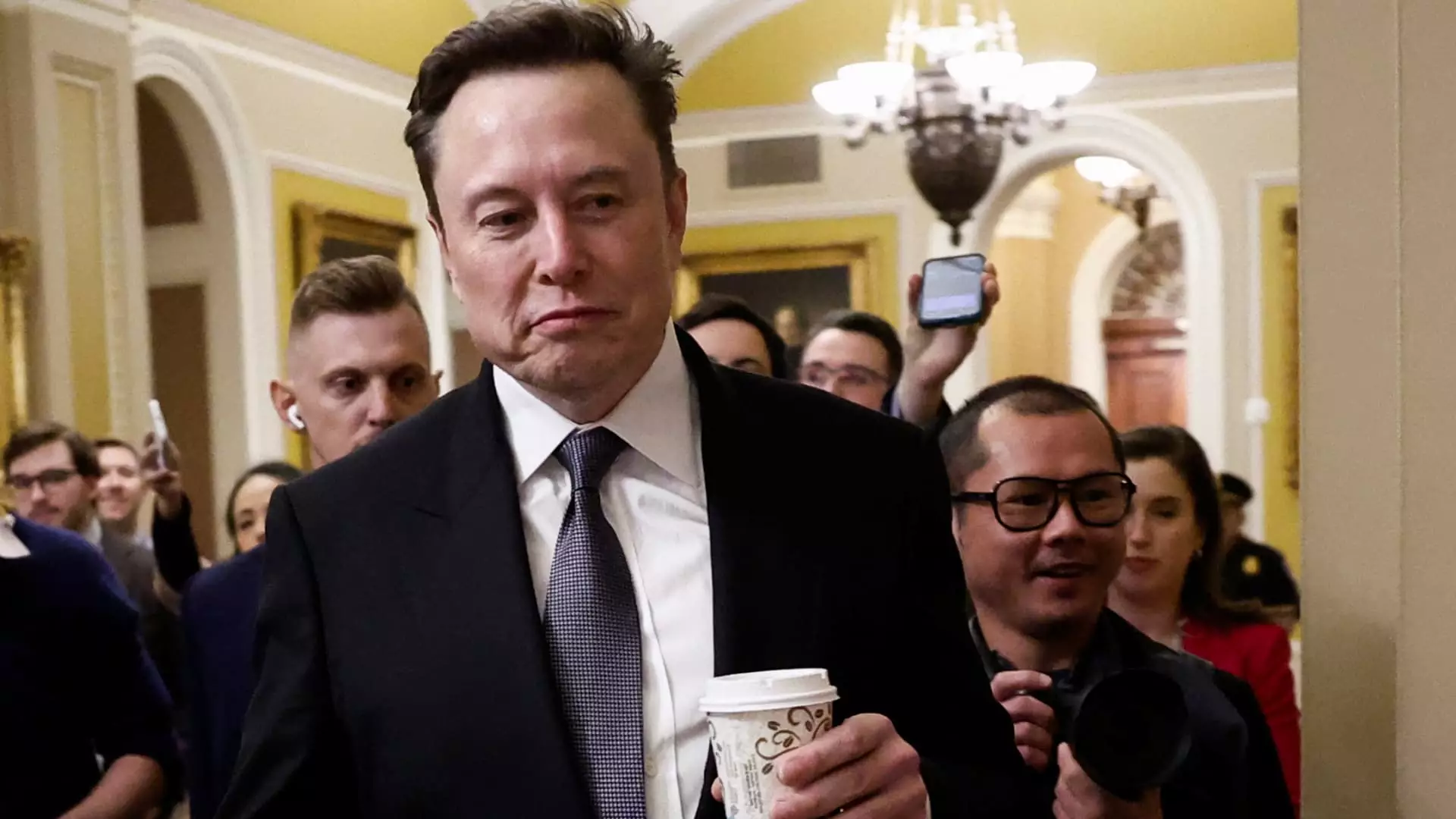In recent weeks, the House Democrats have voiced strong criticism against their Republican counterparts for allegedly capitulating to the demands of tech billionaire Elon Musk. Representatives Jim McGovern of Massachusetts and Rosa DeLauro of Connecticut have raised alarms over the implications this has for U.S. policy, especially concerning investments in China. Their viewpoints hinge on a bipartisan government funding bill that, if not for Musk’s influence, could have fostered stricter regulations regarding American investments abroad, particularly in the rapidly advancing fields of artificial intelligence (AI) and quantum computing.
As Congress hurriedly passed a stopgap funding measure to stave off a looming government shutdown, McGovern took to social media to express his dissatisfaction. He emphasized that a critical provision aimed at safeguarding American tech and jobs was stripped away, a move he attributes directly to Musk’s business interests in China. For the Democratic representatives, this situation unveils the fragility of American legislative processes when weighed against the interests of powerful corporate figures.
The Musk-China Connection
Musk, the CEO of Tesla, is operating under unique constraints that intertwine his corporate strategies with foreign policy considerations. Tesla remains the only foreign automobile manufacturer with a wholly-owned factory in China, a significant achievement that underscores Musk’s commitment to the Chinese market. Furthermore, Tesla’s recent establishment of a battery production facility in close proximity to its Shanghai operations reinforces his ambitions to tap into the lucrative Chinese economy.
However, critics argue that Musk’s financial interests may compromise U.S. national security. McGovern highlights Musk’s possible reliance on favorable relations with Chinese authorities, hinting at a troubling scenario where corporate profits could potentially dictate geopolitical decision-making. For example, Musk’s plans to develop an AI data center in China also raise red flags among U.S. lawmakers who fear that this could lead to sensitive data and technology being vulnerable to exploitation.
The tension surrounding Taiwan, a self-governing entity that China claims sovereignty over, has become another focal point of concern. Reports have emerged suggesting that Musk’s other company, SpaceX, withheld its Starlink satellite internet services in Taiwan following requests from Chinese and Russian officials. DeLauro voiced her apprehension regarding Musk’s close ties to the Chinese Communist Party, calling into question whether profit should take precedence over ethical considerations and national security.
The crux of this situation is not merely about a tech CEO’s business maneuvers; it speaks to a broader narrative about the intersection of corporate interest and governance. Musk’s engagements with influential political figures, particularly his alignment with former President Trump, suggest a trend where billionaire executives wield substantial influence over policy, steering national conversations to suit their business models.
The political fallout from Musk’s actions has been palpable. DeLauro’s openly critical correspondence to Congress underscores the mounting apprehension among lawmakers about a corporate figure’s sway over public policy. Her reference to Musk as “President Musk” illustrates the perceived blurring of lines between corporate leadership and political authority, raising fundamental questions about governance and accountability in the modern era.
Reactionary tensions flared even further when Musk retaliated against DeLauro’s public stance, labeling her an “awful creature” in a comment on X (formerly Twitter). This exchange reflects the growing normalization of personal attacks in political discourse, particularly in the domain of social media, where public figures wield tremendous platforms to influence public opinion.
As the powerful forces of business and politics collide, the need for clearer boundaries and ethical considerations is more pressing than ever. The interplay of Musk’s ambitions and U.S. interests prompts a reassessment of how technology leaders navigate international waters, particularly in regions where geopolitical tensions run high. This episode serves as a crucial reminder of the responsibilities that accompany great wealth and influence—an urgent call for accountability in both the corporate realm and the halls of government.
In navigating this challenge, lawmakers, business leaders, and the public alike must work to forge an environment where innovation and national integrity can coexist. The future of not just American technology, but perhaps the stability of international relations, hinges on how these dilemmas are addressed today.

